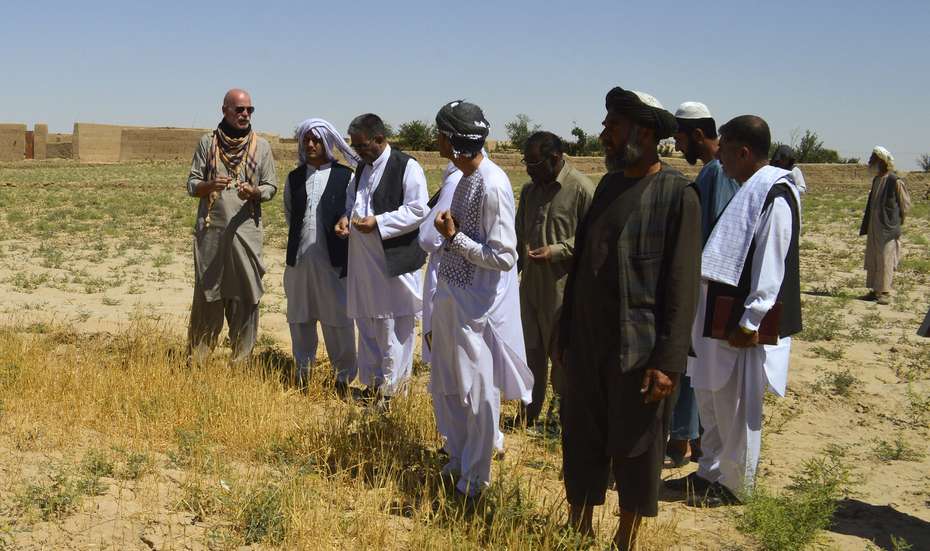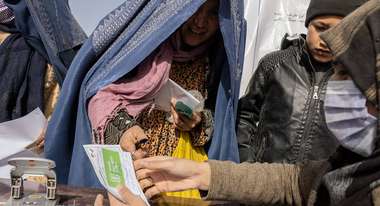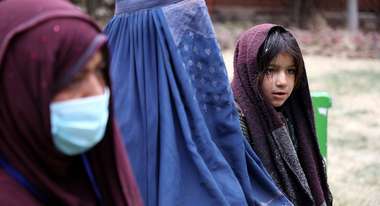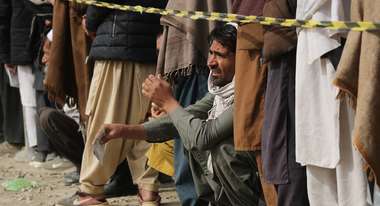Only Peace Can Bring The Answer
On 20 October a new parliament is elected in Afghanistan, while terrorist attacks, violence, poverty and hunger are part of everyday life for many people. Thomas ten Boer, Country Director of Welthungerhilfe in Afghanistan, describes in this interview hopes and challenges around the election.
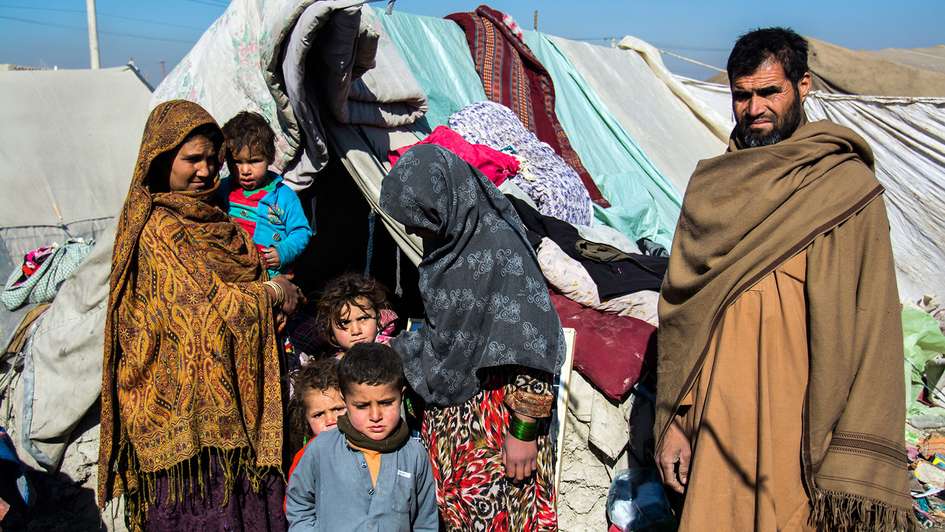
The parliamentary elections in Afghanistan have been postponed several times to ensure security and logistics, now they take place on 20 October. What do people think about the election? What expectations do people have?
Thomas ten Boer: Political parties and civil society ventilated their concern over the possibility of fraud in the election and accused the Independent Election Commission and the government of not having the will to conduct a fair and transparent election in the country. If this is true? Well, there are cases reported where people registered more than once but the Government has introduced a biometric system whereby voters, after the voting and leaving the voting station, must register their fingerprint to verify irregularities.
Election in Afghanistan
The Afghan parliament has 249 seats. On October 20th 2,500 candidates are campaigning for the positions. The political arena is quite divided, most candidates are not party bounded but often have a commitment to their direct environment instead of a country approach. It is refreshing that the number of newcomers and younger candidates is relatively high. Election results are expected in December.
The people have a lack in confidence if a new parliament can change the situation since many candidates receive votes on an ethnic or tribal preference to safeguard their presence in parliament instead of being motivated by the candidate’s promises.
Peace is what Afghanistan is hoping for, peace which is highly needed to bring development, to stop daily fear and ensure a normal life, to bring employment and education. Peace can bring families together which are now divided with millions of Afghans living abroad as refugees.
Election in Afghanistan: People Have a Lack in Confidence
Only a few months ago, a severe drought affected 20 of the 34 provinces in Afghanistan, 1.4 million people were in need of food assistance. How is the hunger situation today? Does the issue of food security affect the decision to vote?
Thomas ten Boer: With the summer heat making place for the upcoming winter cold the precipitation is still way below the needed rain. The Government together with the FAO, WFP and a high number of national and international NGOs are distributing food but also, as Welthungerhilfe, distributing seeds to grow winter wheat. More than 1 million people depend on food assistance and due to the drought 275,000 people are displaced within Afghanistan and looking for alternative opportunities to life and have an income.
The security situation impacts the food production and staple foods are available on the market, but the people don’t have the money to buy; no work and therefore no income. Over the whole country almost 13 million people cannot afford a proper meal and 4 of 10 children under 5 years is suffering underfeeding.
Food security is important for the Afghans, but they all know that only peace can bring the answer. The people I talked to don’t ask for free food, they ask for peace because the Afghan people are hardworking and with assistance they can produce their own food.

Food security is important for the Afghans, but they all know that only peace can bring the answer. The people I talked to don’t ask for free food.
13 Million People Cannot Afford a Proper Meal
Last year Welthungerhilfe supported about 270,000 people in Afghanistan. What are the key challenges for the work of Welthungerhilfe after the elections?
The biggest challenge for Welthungerhilfe is to keep access to the rural areas, to the communities and work with the people to improve their life. Access to people in need is hampered by insecurity and violence. The Taliban/IS clearly stated that they will oppose the elections and the results.
Safety of the staff is the highest priority. However, Welthungerhilfe keeps the commitment to the people to ensure food security, continue with food and seed distributions and training farmers to be better prepared for the coming planting season.
A major challenge will come in 2019 if the precipitation for this winter cannot replenish 2 years of drought. Ground water levels dropped considerable and if 2019 becomes as dry as 2018 the people will leave their farms to find jobs in the cities.




